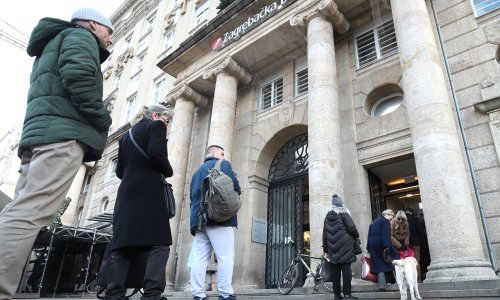There is no reason to fear that funds would be syphoned from Croatian banks due to the eurozone crisis as the capital possessed by Croatian banks is too meagre for the recovery of their foreign owners. Furthermore, foreign banks already have their source of liquidity in the European Central Bank, an international conference on the debt crisis in Europe and its repercussions for Croatia heard in Zagreb on Wednesday.
Zagrebacka Banka (ZABA) has not been instructed by UniCredit Group to reduce its activities in 2012, but ZABA must take care of risks to its assets, ZABA management board chairman Franjo Lukovic said at the conference organised by Banka magazine and the Friedrich Ebert Foundation.
According to Lukovic, in a bid to lessen their risks foreign bank groups ask local banks to fix the ratio of local deposits and the amount of loans those local banks can approve. This would lead to a contraction of assets and a reduction of sources for financing development, and things will change for the better only with the creation of conditions for cutting risk premium costs, he said.
Croatia can tackle all that with the implementation of reforms that will facilitate cost-cutting and doing business, and the key challenge for the new government will be to show in a convincing way which projects and investments it is going to implement to revive economic growth, the banker said.
Privredna Banka Zagreb (PBZ) chief economist Marko Skreb spoke about the importance of fiscal consolidation, saying that it would help Croatia preserve its credit rating and funnel more funds from banks to the private sector which will encourage optimism and GDP growth.
Vladimir Gligorov of the Vienna Institute for International Economic Studies said that the financial crisis in the eurozone was triggered off by the banking crisis, and according to the latest estimates, between 600 and 800 billion euros will be needed to aid staggering banks.
Gligorov said that the key problem in the current crisis was not inability but unwillingness to pay debts, as evidenced in the case of Greece, and this unwillingness was primarily a political and social issue.




































